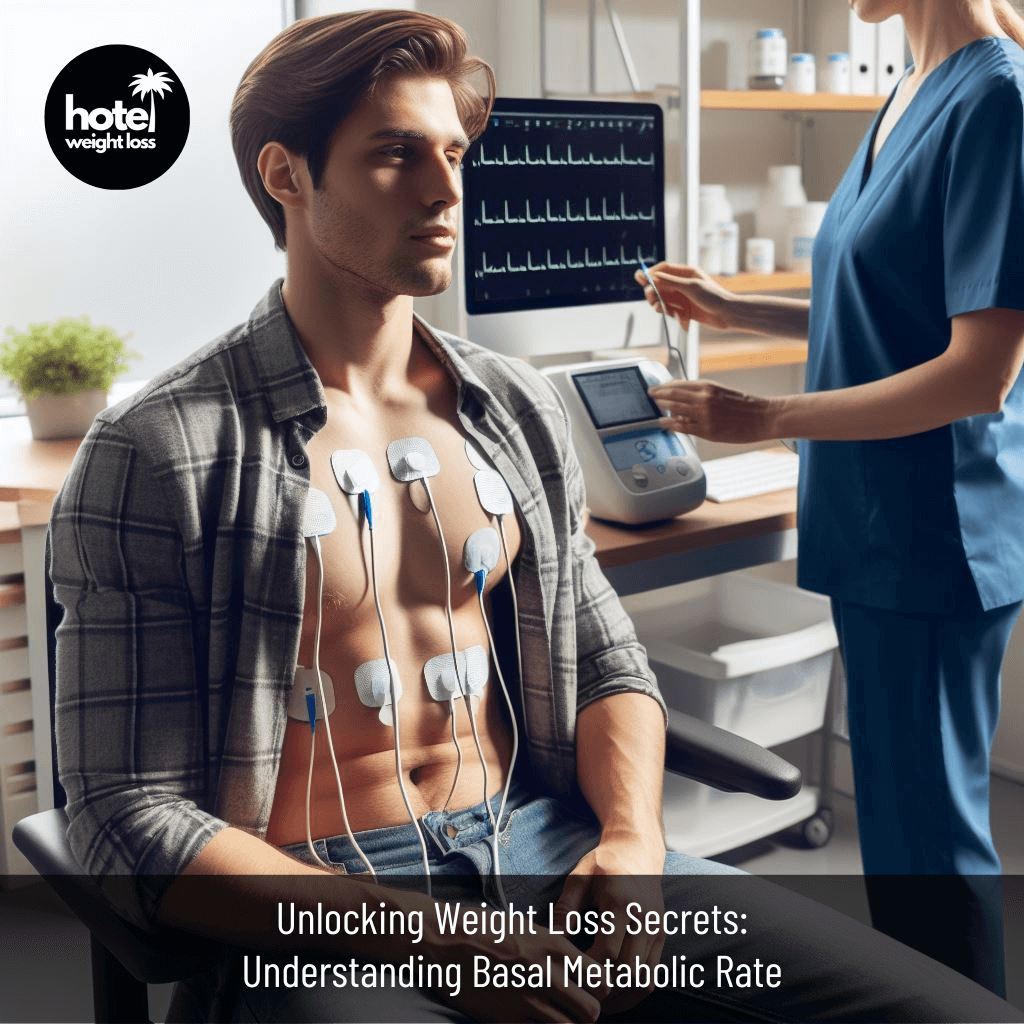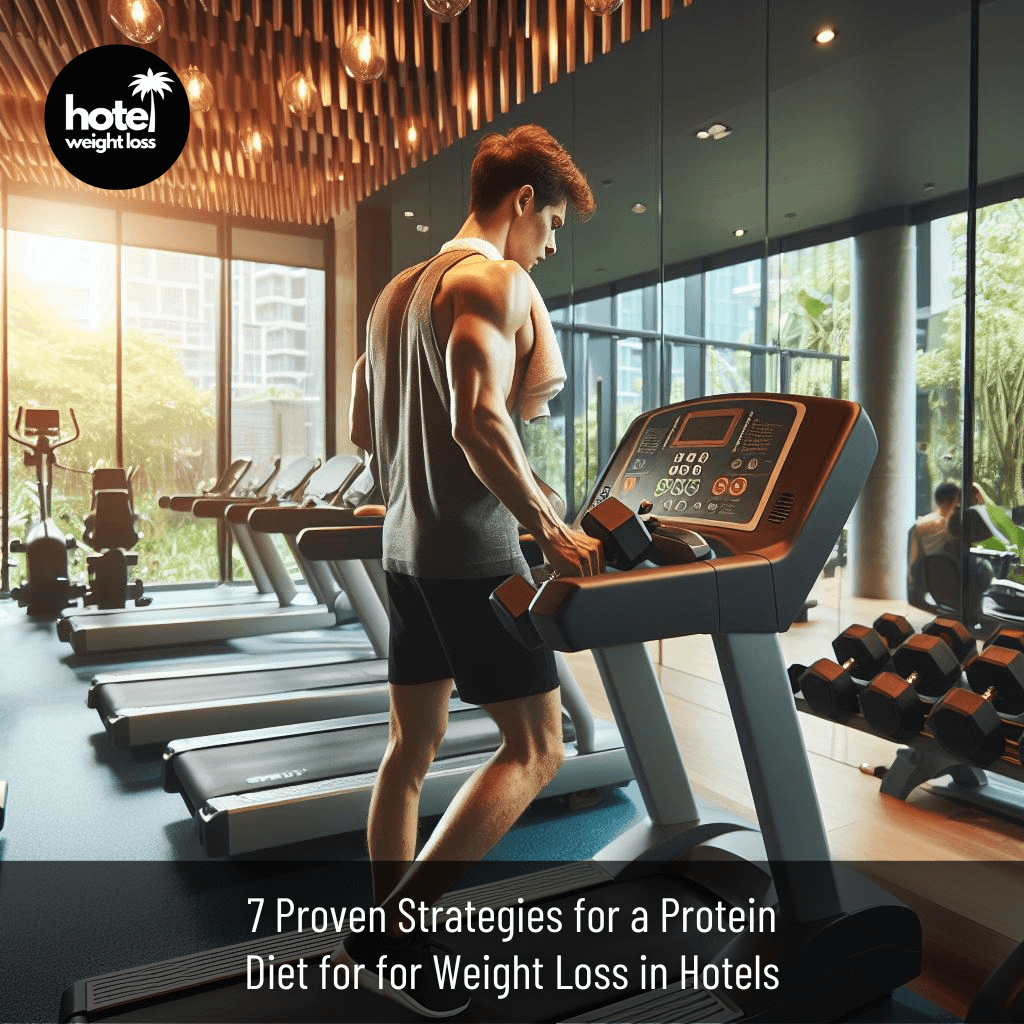Have you ever wondered why some people seem to shed pounds while others struggle despite their efforts effortlessly? Our bodies have the solution, particularly a vital idea known as basal metabolic rate (BMR). Picture this: your body is like a finely tuned machine, constantly burning fuel even at rest. However, how precisely does this process operate, and how might comprehending it transform your experience with weight loss? Come explore the complexities of human basal metabolic rate research with us as we reveal new formulas that could unlock the transformational potential hidden in your body.
Critical Takeaways
- Basal metabolic rate (BMR) is the foundation for understanding how many calories your body needs to sustain its essential functions at rest.
- Creating precise BMR measurement formulas is crucial to creating weight loss plans that work.
- Incorporating keto diet principles can optimise BMR and combat insulin resistance, accelerating weight loss results.
- Hotel Weight Loss provides cutting-edge approaches and professional advice to maximize fitness results by utilising BMR.
Exploring Basal Metabolic Rate
The Science Behind Basal Metabolic Rate
Understanding Basal Metabolic Rate Measurement
Understanding your body’s energy needs is the cornerstone of any successful weight loss journey. The basal metabolic rate (BMR), which is the body’s energy at rest for maintaining vital processes like breathing, circulation, and cell repair, is the foundation of this knowledge. Measuring BMR accurately is crucial for tailoring personalised weight loss plans and optimising calorie intake and expenditure. In the groundbreaking study titled “Basal metabolic rate studies in humans: measurement and development of new equations” by C J K Henry, researchers shed light on the complexities of BMR measurement and proposed innovative equations to enhance accuracy.
The Impact of Basal Metabolic Rate on Weight Loss
Imagine your body as a furnace, constantly burning calories to fuel its vital functions. Your basal metabolic rate (BMR) represents the minimum energy required to sustain these functions at rest. Interestingly, BMR varies from person to person based on age, gender, body composition, and genetics. Understanding your BMR is the first step towards crafting a personalised weight loss strategy that aligns with your body’s unique needs. By leveraging insights from studies like “Basal metabolic rate studies in humans: measurement and development of new equations,” individuals can unlock the secrets to sustainable weight loss and improved metabolic health.
Optimising Basal Metabolic Rate with the Keto Diet
The ketogenic (keto) diet has emerged as a powerful ally in the quest for efficient weight loss solutions. By drastically reducing carbohydrate intake and increasing fat consumption, the keto diet induces a state of ketosis, where the body burns fat for fuel instead of glucose. This metabolic shift accelerates fat loss and offers potential benefits for individuals with insulin resistance. Studies have shown that the keto diet can improve insulin sensitivity and regulate blood sugar levels, making it a valuable tool in combating metabolic disorders. By incorporating keto principles into their lifestyle, individuals can optimise their basal metabolic rate and achieve sustainable weight loss results.

Overcoming Insulin Resistance with Keto Diet
Insulin resistance poses a significant barrier to weight loss for many individuals, sabotaging their efforts to shed excess pounds. Characterised by impaired insulin function and elevated blood sugar levels, insulin resistance disrupts the body’s ability to regulate energy metabolism effectively. However, emerging research suggests that the ketogenic (keto) diet may be vital in overcoming insulin resistance and restoring metabolic balance. By minimising carbohydrate intake and prioritising fat consumption, the keto diet helps stabilise blood sugar levels and improve insulin sensitivity, paving the way for sustainable weight loss and enhanced metabolic health.
Hotel Weight Loss: Your Partner in Wellness
Embarking on a weight loss journey can feel overwhelming, but you don’t have to navigate it alone. At Hotel Weight Loss, we’re committed to empowering individuals with the knowledge, tools, and support they need to achieve their fitness goals. Our health experts specialise in personalised weight loss strategies tailored to your unique metabolic profile. Whether you’re interested in optimising your basal metabolic rate, exploring the benefits of the keto diet, or overcoming insulin resistance, we’re here to guide you every step of the way. Contact Hotel Weight Loss today and embark on a transformative journey towards better health and vitality.
Facts and Figures
Find below Table 3 from the original journal article depicting normal trends in BMR according to respective ages in men and women.

Credit: https://sci-hub.wf/10.1079/phn2005801
For more information, find below Table 17 showing the prediction of basal metabolic rate (BMR) from weight alone or both weight and height together.

Credit: https://sci-hub.wf/10.1079/phn2005801
Conclusion
In the pursuit of weight loss, understanding the intricacies of basal metabolic rate (BMR) is paramount. By harnessing the power of BMR and incorporating innovative strategies such as the ketogenic (keto) diet, individuals can achieve sustainable results and overcome common barriers like insulin resistance. With expert guidance from Hotel Weight Loss, you can unlock your body’s full potential and embark on a journey towards lifelong wellness. Contact us today to start your transformational journey and discover the joy of a healthier, happier you.
FAQs
-
What is basal metabolic rate (BMR), and why is it important for weight loss?
Basal metabolic rate (BMR) represents the amount of energy expended by the body at rest to maintain essential functions such as breathing, circulation, and cell repair. Understanding BMR is crucial for tailoring personalised weight loss plans that align with your body’s unique needs, ensuring efficient calorie intake and expenditure.
-
How can I accurately measure my basal metabolic rate (BMR)?
Measuring BMR accurately typically involves specialised equipment and techniques such as indirect calorimetry or predictive equations based on age, gender, weight, and height. Consulting a health professional or using online calculators can help estimate your BMR and guide your weight loss journey.
-
How does the keto diet optimise basal metabolic rate (BMR)?
The ketogenic (keto) diet can optimise BMR by inducing a metabolic state known as ketosis, where the body burns fat for fuel instead of glucose. By minimising carbohydrate intake and increasing fat consumption, the keto diet enhances fat metabolism and may boost BMR, leading to accelerated weight loss and improved metabolic health.
-
How does insulin resistance affect weight loss, and can the keto diet help overcome it?
Insulin resistance, impaired insulin function and elevated blood sugar levels can hinder weight loss by disrupting the body’s ability to regulate energy metabolism effectively. Emerging research suggests that the keto diet may help overcome insulin resistance by stabilising blood sugar levels and improving insulin sensitivity, facilitating sustainable weight loss and metabolic balance.
-
What support does Hotel Weight Loss offer for individuals struggling with weight loss?
At Hotel Weight Loss, we offer personalised guidance and support from a team of health experts specialising in weight loss strategies tailored to your unique needs. Whether you’re interested in optimising your basal metabolic rate, exploring the benefits of the keto diet, or overcoming insulin resistance, we’re here to empower you on your journey towards better health and vitality.
-
How can I get started with Hotel Weight Loss and embark on my weight loss journey?
Getting started with Hotel Weight Loss is easy! Contact us to schedule a consultation with one of our health experts, who will work with you to assess your goals, preferences, and needs. From there, we’ll create a personalised weight loss plan to help you achieve sustainable results and improve your life.
-
Is basal metabolic rate (BMR) the same for everyone, or does it vary based on age and gender?
Basal metabolic rate (BMR) varies from person to person based on several factors, including age, gender, body composition, and genetics. While specific individuals may have a naturally higher BMR due to factors like muscle mass and activity level, others may have a lower BMR. Understanding your individual BMR is essential for tailoring personalised weight loss strategies that align with your body’s unique needs.
-
Can lifestyle factors like exercise and sleep quality affect basal metabolic rate (BMR)?
Lifestyle factors such as regular exercise, adequate sleep, and stress management can influence basal metabolic rate (BMR). Regular physical activity, especially strength training, can increase muscle mass and boost BMR, while insufficient sleep and chronic stress may lower BMR. Individuals can optimise their metabolic health and support their weight loss efforts by prioritising a healthy lifestyle that includes regular exercise and quality sleep.
-
Are there any medical conditions that can affect basal metabolic rate (BMR) and impact weight loss?
Certain medical conditions, such as thyroid disorders, hormonal imbalances, and metabolic disorders, can affect basal metabolic rate (BMR) and impact weight loss efforts. Thyroid disorders, for example, can disrupt thyroid hormone production, leading to changes in metabolism and potential weight gain or loss. Consulting a healthcare professional is essential for identifying and addressing any underlying medical conditions affecting your metabolism and weight management.
-
How long does it typically take to see results from optimising basal metabolic rate (BMR) and following a keto diet?
The timeframe for seeing results from optimising basal metabolic rate (BMR) and following a keto diet can vary depending on individual factors such as starting weight, metabolic health, adherence to the diet, and level of physical activity. Some individuals may experience rapid weight loss and improvements in metabolic health within weeks of starting a keto diet, while others may see gradual progress over several months. Consistency, patience, and personalised guidance from health experts are critical to achieving sustainable results.
Ready to unlock your body’s full potential and achieve your weight loss goals? Contact Hotel Weight Loss today for personalised guidance and support from our health experts. We’ll embark on a transformative journey towards better health and vitality.
Also, see Shedding Pounds, Not Tears: How Weight Loss Monitoring Empowers Your Hotel Wellness Retreat
References
Henry CJ. Basal metabolic rate studies in humans: measurement and development of new equations. Public Health Nutr. 2005 Oct;8(7A):1133-52. doi: 10.1079/phn2005801. PMID: 16277825.
FAO/WHO/UNU. Energy and Protein Requirements. Report of a Joint FAO/WHO/UNU Expert Consultation. Technical Report Series No. 724. Geneva: World Health Organization, 1985. Retrieved from: https://pubmed.ncbi.nlm.nih.gov/3937340/
Mitchell HH. Comparative Nutrition of Man and Domestic Animals. Vol. I. New York: Academic Press, 1964. Retrieved from: https://shop.elsevier.com/books/comparative-nutrition-of-man-and-domestic-animals/mitchell/978-0-12-395551-7 Aub JC, DuBois EF. Clinical calorimetry: the basal metabolism of dwarfs and legless men with observations on the specific dynamic action of protein. Archives of Internal Medicine 1917; 19: 840 –64. Retrieved from: https://www.cambridge.org/core/journals/public-health-nutrition/article/basal-metabolic-rate-studies-in-humans-measurement-and-development-of-new-equations/61A9EA486ABFA478FEF2FCE1E70D5BEE




